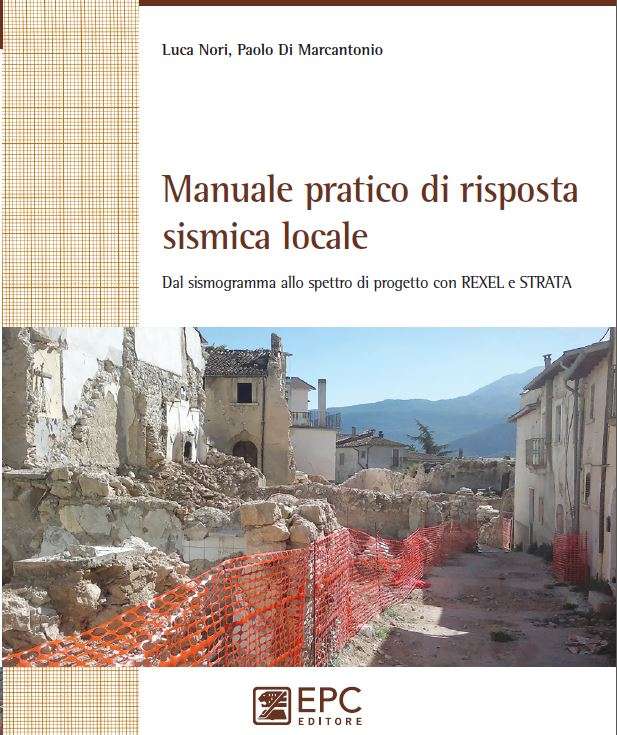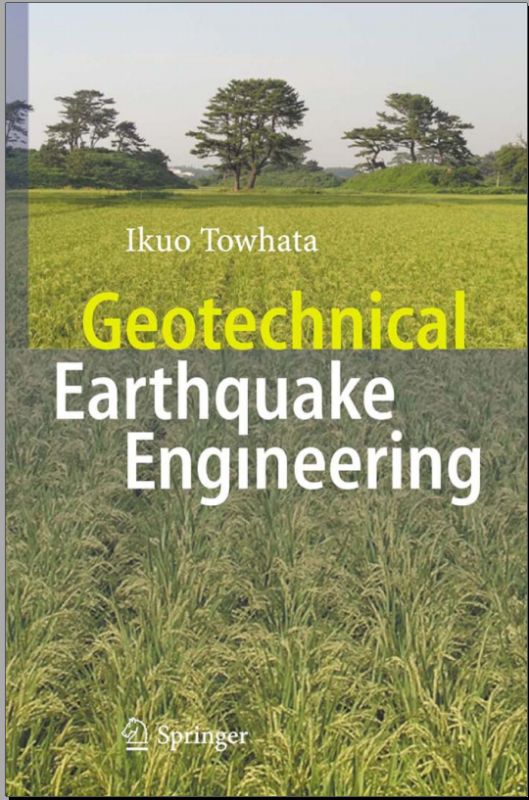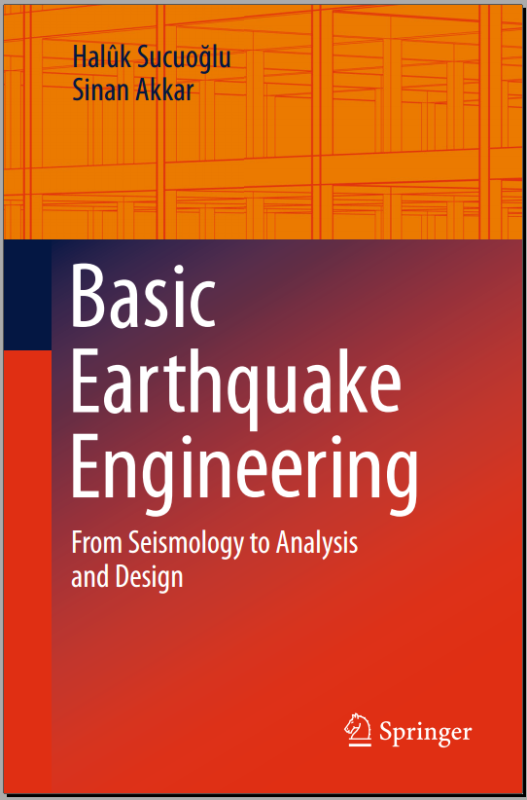Navigation
Install the app
How to install the app on iOS
Follow along with the video below to see how to install our site as a web app on your home screen.
Note: This feature may not be available in some browsers.
More options
Style variation
-
Congratulations MintJulep on being selected by the Eng-Tips community for having the most helpful posts in the forums last week. Way to Go!
You are using an out of date browser. It may not display this or other websites correctly.
You should upgrade or use an alternative browser.
You should upgrade or use an alternative browser.
Ground response 1
- Thread starter killi_82
- Start date
- Status
- Not open for further replies.
You may need to be a bit more specific. What are you looking to do? Determine seismic loads on structures? Assess potential for liquefaction? Generate attenuation relationships?
I like to debate structural engineering theory -- a lot. If I challenge you on something, know that I'm doing so because I respect your opinion enough to either change it or adopt it.
I like to debate structural engineering theory -- a lot. If I challenge you on something, know that I'm doing so because I respect your opinion enough to either change it or adopt it.
- Thread starter
- #3
I would like to understand comprehensively the way we propagate the seismic wave (time history) from bedrock to ground.
this is basically what SHAKE and or others do.
but taking its manual is not easy for me to understand, I need other references to help me.
- Thread starter
- #5
You're most welcome rbudiman. Are you familiar with Kramer's work? My only experience with it has been through reading his text.
I like to debate structural engineering theory -- a lot. If I challenge you on something, know that I'm doing so because I respect your opinion enough to either change it or adopt it.
I like to debate structural engineering theory -- a lot. If I challenge you on something, know that I'm doing so because I respect your opinion enough to either change it or adopt it.
- Thread starter
- #7
I have read this book for some sections that I needed most.
basically it gives you a good understanding on Probabilistic Seismic Hazard Analysis, rather than the works of prof. Cornell.
But I'm a bit disappointed with the explanation of the ground response, it is quite easy to understand, but doesn't give any details (or real examples) about the numerical process.
I have read many times about the fourier transform and not an easy step for me as well to understand it.
I have a dream, that someday somehow I could make a similar program like SHAKE, DEEPSOIL, etc does.
This understanding will help you much when designing underground section, which I'm much involved these days.
basically it gives you a good understanding on Probabilistic Seismic Hazard Analysis, rather than the works of prof. Cornell.
But I'm a bit disappointed with the explanation of the ground response, it is quite easy to understand, but doesn't give any details (or real examples) about the numerical process.
I have read many times about the fourier transform and not an easy step for me as well to understand it.
I have a dream, that someday somehow I could make a similar program like SHAKE, DEEPSOIL, etc does.
This understanding will help you much when designing underground section, which I'm much involved these days.
i find Kramers book very confusing...i am yet to find a good document or post that explains site response well. i am keen to figure out the difference between linear, non-linear, equivalent liner, total/effective stress site response methods and when to use which one
- Thread starter
- #9
- Thread starter
- #11
Look at university of Illinois at Urbana champaign.
There is an online course for geotechnical earthquake engineering tought by professor Hashash. DEEPSOIL is extensively used during the course. Professor Hashash is also very responsive if you have any questions.
There is an online course for geotechnical earthquake engineering tought by professor Hashash. DEEPSOIL is extensively used during the course. Professor Hashash is also very responsive if you have any questions.
-
1
- #13
rbudiman, there are very few dedicated books on seismic ground response.
The only one I know about in English is Yoshida's (just translated from the Japanese):

I wrote an handbook on seismic response but it is in Italian, more practical than theoretical, with developed examples and case histories using the STRATA freeware from Rathje and Kottke, a really powerful tool for 1D total stress analyses.

Freewares like STRATA and deepsoil have good manuals which are also educational. The manuals of main commercial softwares are also available online.
I believe that, some of your doubts can be clarified in thsi forum. for example, when to use Linear elastic, linear equivalent, non linear analysis.
The only one I know about in English is Yoshida's (just translated from the Japanese):

I wrote an handbook on seismic response but it is in Italian, more practical than theoretical, with developed examples and case histories using the STRATA freeware from Rathje and Kottke, a really powerful tool for 1D total stress analyses.

Freewares like STRATA and deepsoil have good manuals which are also educational. The manuals of main commercial softwares are also available online.
I believe that, some of your doubts can be clarified in thsi forum. for example, when to use Linear elastic, linear equivalent, non linear analysis.
I just realized the linear, non linear doubt was doughole's I repield inthe other post
rbudiman said:I have a dream, that someday somehow I could make a similar program like SHAKE, DEEPSOIL, etc does.
This understanding will help you much when designing underground section, which I'm much involved these days.
Actually, what would be needed right now is some 2-D response analysis softwares like a Quad4cam with a GUI ore some soil-structre dynamic interaction softwares similar to SASSI, or even some nonlinear ground response analysis software with a friendly interface and probabilistic capabilities.
And they should be moderately priced.
- Thread starter
- #16
McCoy, thank you so much!. Fantastic!, I recalled the Yoshida's book.
I believe you are an expert on this, do you have a plan to translate in English?
yes I agree, 2D response is on the move now.
Have you tried using Plaxis and Flac (expensive ones) before?
Are they good as well, for estimating the ground response.?
I believe you are an expert on this, do you have a plan to translate in English?
yes I agree, 2D response is on the move now.
Have you tried using Plaxis and Flac (expensive ones) before?
Are they good as well, for estimating the ground response.?
rbudiman, no, never used FLAC or plaxis, they are at the top for 2D analyses but pretty expensive for a single-individual business like mine, although I might choose to make an investment had I a big job to do, something like a nuclear power plant, a very tall building, a large bridge and so on.
Sophisticated probabilistic 1D analyses can be carried out with free softwares like STRATA.
The trouble with 2D response analyses is that the uncertainties related to the 1D analyses are multiplied. Also, the model is very often approximate, since you rarely have enough investigations across your sections. So, a powerful and very sophisticated Mathematical model is built and extrapolated from relatively few data, usually. The results reflect this.
I tried to convince the publisher to translate but she's a little reluctant, maybe doesn't know the global market. I'm expected to start a second handbook together with a structural engineer, related to the design of buildings in various situations of local seismic response, in such a case I'll insist to translate it.
Sophisticated probabilistic 1D analyses can be carried out with free softwares like STRATA.
The trouble with 2D response analyses is that the uncertainties related to the 1D analyses are multiplied. Also, the model is very often approximate, since you rarely have enough investigations across your sections. So, a powerful and very sophisticated Mathematical model is built and extrapolated from relatively few data, usually. The results reflect this.
I tried to convince the publisher to translate but she's a little reluctant, maybe doesn't know the global market. I'm expected to start a second handbook together with a structural engineer, related to the design of buildings in various situations of local seismic response, in such a case I'll insist to translate it.
- Thread starter
- #18
Ehi guys, you are most welcome, I'm not an academic expert and focus mostly on the practical side of site response, although I rely on the personal suggestions of a few very good professors we have in our country.
- Status
- Not open for further replies.
Similar threads
- Question
- Replies
- 0
- Views
- 5K
- Replies
- 0
- Views
- 824
- Replies
- 1
- Views
- 788
- Locked
- Question
- Replies
- 5
- Views
- 1K
- Locked
- Question
- Replies
- 4
- Views
- 409


